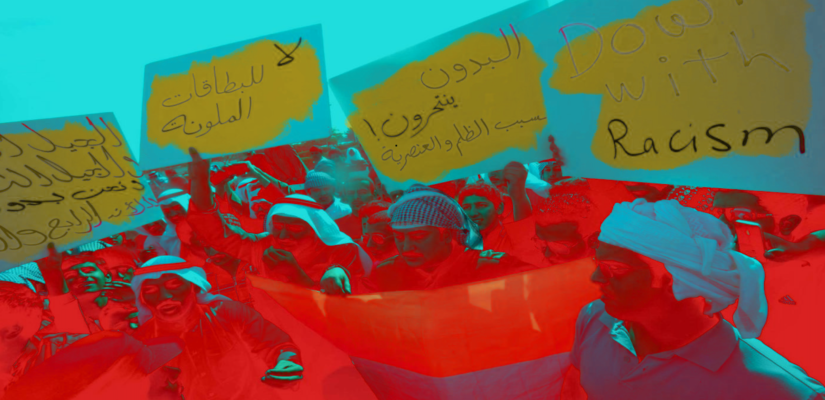
The Category of “Illegality” in the Gulf States. The case of the Biduns in Kuwait | (dot)migration

(dot)migration | A space by EMILY TASINATO
The category “migrant” is never a neutral concept, but rather a highly-politicized label serving the interest of who is in power and which affects the legal, socio-political and economic status of those individuals very often perceived as undesirables within a host society. In her article Framing Nationality in the Migratory Context: The Elusive Category of Biduns in Kuwait (2014), Claire Beaugrand reflects, more specifically, on the meaning and the role of the status of “illegality” in the Arab Gulf monarchies by analysing the case of the Biduns: long-terms migrants without a proper national affiliation, bidun in Arabic means “without”, who moved in Kuwait from the Northern Arabia desert between the 1960s and 1980s.
According to the author, that of the Biduns is a contingent category that since the independence of Kuwait in 1961 has been strongly affected by the changing political and migratory context across the Persian Gulf region and the Middle East. More specifically, the emergence of Nasserism, an ideology that didn’t fit with the American model developed in the Gulf region, at the beginning of the ‘50s from one hand, and the 1979 Iranian revolution and the Iran Iraq war (1980-1988), that put on the spotlight the menace of Shi’a extremism across the region, from the other one, led the Kuwaiti authorities to see in the category of the “Arab migrant” the main threat to the national stability and security of the country.
Thus, in order to not create the potential for political and social mobilization, following the path of the other Gulf States, since the beginning of the 1980s the country started to replace Arab migrants with Asian labour force, considered cheaper, more docile and not intentioned to settle inside Kuwait. As mentioned before, this shift in national migration policies affected dramatically the legal status of the Biduns, who until that moment had been depicted as functional and loyal actors towards the al-Sabah family as opposed to Arab nationalist workers influenced by Nasserism. In Beaugrand words:
A new official narrative emerged in 1985 that described the group as illegal migrants, stigmatized for their illegal entry and undue claims. This time, the opposite figure to the biduns is not that of Arabs but of the legal temporary workers from South East Asia, who gradually came to replace the Arabs whose temporary residence in the country started to threaten to become permanent.
Simply by adding the word “illegal”, these individuals started to be the target of a process of criminalization and stigmatization by the ruling elite and security forces due to their juridical (non)status of illegality and stateless. If we consider that the idea of “illegality” is devoted to discipline migrants into “a docile, compliant and cheap workforce by rendering them deportable”, the Biduns’ condition of non-deportability due to their stateless status has not prevented that these illegal migrants were silenced and transformed into a-political subjects deprived of their fundamental human rights, from the right to education, to work, to the access to basic healthcare and welfare services.
However, since 2011, on the heels of the Arab uprisings that spread across the region, this condition of invisibility changed and for the first time the Biduns started to organize self-run mobilizations violently repressed by the police forces, to reclaim their own rights and their recognition as “existing” long residents within Kuwait. This short report by the Dublin-based NGO Front Line Defenders (2014) deals with the operate of some Bidun activists, and their efforts shared with some Kuwaiti right defenders in supporting the Biduns struggle for equal rights.
Other sources: to get to know more about citizenship and migration policy issues in the Arab Gulf Monarchies, check out these interesting articles:
- Babar, Zahra. “The Enemy Within: Citizenship-Stripping in the Post-Arab Spring GCC”. Middle East Journal, 71, 4, 2017.
- Lori, Noora. “National Security and the Management of Migrant Labor: A Case Study of the United Arab Emirates”. Asian and Pacific Migration Journal, 20, 3-4, 2011.